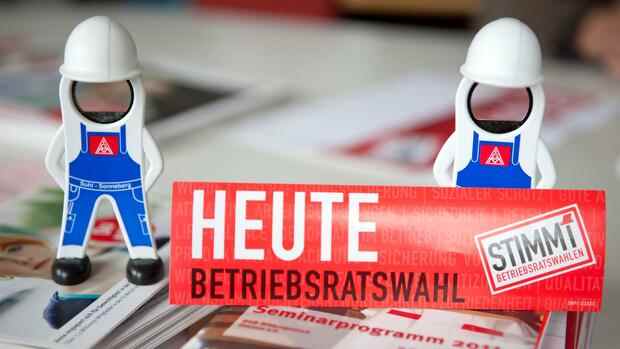From the beginning of March to the end of May 2022, works council elections will again take place across Germany – under new framework conditions, because the Works Council Modernization Act has been in force since June of this year. Important questions are: Can employers influence the choice of employee representatives in their company? Where is the line between permissible expression of opinion and prohibited partisanship?
“The principle of neutrality applies to employers, but they are not subject to a ban on speaking,” says Bernd Pirpamer, partner at the law firm Eversheds-Sutherland in Munich. “You are not allowed to influence or hinder the choice, but position yourself in a neutral and objective manner.”
For example, they could call for broad participation in the election, but also address individual employees to see whether they could imagine running for the works council. “But they are not allowed to promise them advantages, advertise a candidate or give them financial preference,” emphasizes the labor lawyer.
Top jobs of the day
Find the best jobs now and
be notified by email.
A statement by the employer that he could very well imagine working well with a certain employee on the works council should, in Pirpamer’s assessment, still be within the legally permissible framework.
Employers must ensure that the number of employees entitled to vote is correctly determined
When preparing for elections, employers should be very careful that everything goes according to plan, advises the lawyer. For example, they would have to ensure that the correct company was chosen and that the number of employees entitled to vote was correctly determined.
Executives are left out, which can certainly lead to delimitation problems. “Serious errors can lead to the nullity of the election, which means that all company agreements are retrospectively void,” emphasizes Pirpamer.
Most of the works council elections were formally not completely correct, says Ina-Kristin Hubert, labor lawyer at Rödl & Partner in Hamburg. “However, they are usually not challenged because, for many reasons for avoidance, a second condition must also be met: the mistake must have an impact on the election result.”
When contesting an election, the Works Constitution Act leaves some questions unanswered, emphasizes the lawyer. The employer can no longer contest the electoral roll if its inaccuracy is based on its information, i.e. if it has made gross blunders. “But what if he subconsciously submitted an incorrect personnel list, that is, did not act deliberately, but only negligently?”
Employees may only contest a works council election because of an incorrect list if they have previously objected to the list. Unless they were prevented from doing so. What that means exactly is unclear, says Hubert. Does this also apply to employees who have been sick or on vacation? Questions like these would probably occupy the labor courts in the future.
The simplified electoral process is characterized above all by shorter deadlines
A central innovation of the Works Council Modernization Act provides that the simplified voting procedure is now mandatory in companies with up to 100 employees and voluntary with up to 200 employees.
The simplified procedure is characterized above all by shorter deadlines, explains Hubert. “I don’t know whether the legislature has really done the workers a favor.” Because there is less time for drawing up the electoral roll and other necessary formalities, which could potentially increase the risk of formal errors.
Another new feature of the next works council election is the protection against dismissal that has been extended to include election initiators. Pirpamer emphasizes that this only applies in companies that have not yet had a works council.
According to the new law, works councils also have the option of advising in video or telephone conferences at their own request. Should works councils decide in favor of digital meetings, “then the employer must also provide them with the necessary tools,” says the specialist lawyer.
More: Guest comment from Minister of Labor Heil and DGB boss Hoffmann: Plea for a new co-determination
